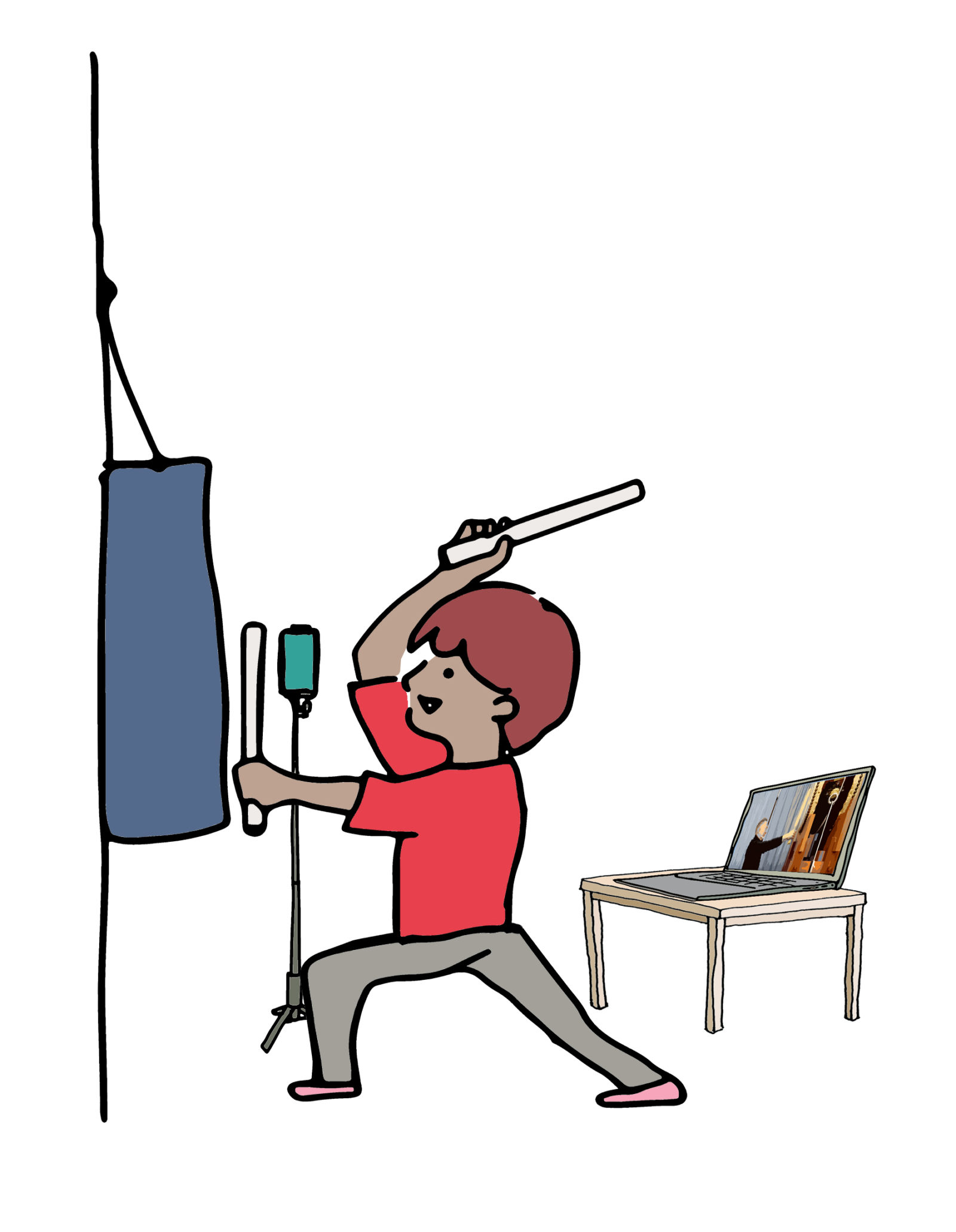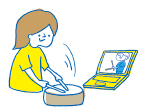Here are the answers to some common questions about the O-daiko Masterclass with Tomohiro Mitome.
We will update this page periodically. Feel free to contact us with any questions of your own.
Q1 Will the O-daiko Masterclass content differ from the Kodo Taiko Fundamentals course?
A: There will be some course content in common, because both courses look at fuse-uchi (upright taiko playing) fundamentals. In the Masterclass, however, we’ll apply the same fuse-uchi theories to o-daiko shomen-uchi (big-drum taiko playing, facing the drum head on).
While the Kodo Taiko Fundamentals course has lessons centered on stretching and physical conditioning for taiko playing, the O-daiko Masterclass does not.
If anything, having taken the Kodo Taiko Fundamentals course beforehand will serve as an advantage because participants will get to build on those foundations as they hone their o-daiko playing. We’ll tailor the Masterclass course to the participants as we progress, working to develop their o-daiko playing skills.
Q2 What level of skill is required to take the O-daiko Masterclass? I wonder if I will be able to keep up or not…
A: The O-daiko Masterclass is designed to suit people ages 15 & over who have been playing taiko for three years or more and who have experience playing in front of an audience. At Kodo Taiko School, we want to share knowledge and skills that will help taiko players with some experience already to discover even more about this captivating instrument and art form. Each class is small so we can tailor our instruction to each individual.
Q3 For the Kodo Taiko Fundamentals courses, there were plans to hold a Taiko Camp on Sado Island. Will there be a camp for the O-daiko Masterclass as well?
A: No, we are not planning to hold a Taiko Camp for the O-daiko Masterclass. Please note that the camps we planned for the Kodo Taiko Fundamentals courses were canceled due to the ongoing COVID-19 pandemic, and there are no plans to reschedule them yet.
Q4 Are we able to record the lessons? Or will we have access to recordings of the lessons?
A: Students are not allowed to make their own video or audio recordings of the lessons. However, all lessons will be recorded by Kodo staff, and students will be given access to the recordings online. Students can view these archive recordings until one month after the course ends.
Q5 If I am absent from a lesson, or need extra help, can I ask for a supplementary lesson?
A: There will be no supplementary lessons. However, the instructor will provide additional guidance and feedback as required in response to the optional task video that participants can submit and questions received via Slack.
If a participant is not able to attend a lesson, we will ask them to watch the lesson recording online instead.
Q6 To take this course, do we need to have a taiko drum to play during the online lessons?
Will we be sharing our own sound during the lessons?
A: Participants will not need to share the sound of their own playing during lessons. However, we do recommend that participants play a taiko or use a substitute that is as close as possible to the feel of a taiko—something that is not too hard and not too soft.
During the O-daiko Masterclass, students will practice two styles of taiko drumming: fuse-uchi (upright taiko playing) and o-daiko shomen-uchi (big-drum taiko playing, facing the drum head on). So you will need to figure out in advance how to position your taiko/taiko substitute for each style as required.
Q7 Do students need a certain level of Japanese to take this course?
A: Participants need to understand either Japanese or English to take this course. The instructors will teach in Japanese, and with advance notice, we can arrange an English interpreter for lessons if required. We can also offer English support for onboarding, tech help, and communications throughout the course. Please let us know your level of Japanese on your application form.
Q8 What can students expect to gain from doing this course? And how should students set their learning objectives and goals?
A: At Kodo Taiko School, our aim is to help taiko players with some experience to take a step deeper into the wonderful world of taiko. We will do this through activities that focus on three areas: spirit, technique, and physique.
The courses center on sharing the knowledge and skills that Kodo has cultivated over the years. Each course is designed to heighten a student’s sense of mind and body while they hone the fundamentals of taiko playing. We hope students will gain the skills and confidence to freely apply what they learn to their own performances.
During each course, students will also learn to play an original Kodo piece.
We would like students to approach their course with an inquisitive mind. We hope they will have fun tackling the various activities we have in store for them.

Q9 How will students be able to notice their own improvements? Is there a framework to help students see their progress?
A: During lessons, the instructor will offer advice and feedback based on what they can see there and then. But there are many aspects of taiko that are hard to judge on Zoom in a group situation, such as the feel, force, and sound of someone’s playing. For that reason, students can also undertake an optional video task, which will give the instructor a chance to effectively evaluate each student.
Along with feedback from the instructor, we think it’s also important for students to notice their own changes and improvements.
Q10 What kind of feedback or evaluations can students expect from instructors on their progress or the optional video tasks or progress?
A: The instructor will review the task video and give each student tailored feedback and advice. The task will not be graded.
Q11 How long will students be given to complete and submit the optional video task? How do we submit it?
A: Ideally, students will submit their video task within a week of receiving the assignment brief. If students need more time, they may submit their task at a later date during the course. Video tasks will not be accepted nor reviewed after the course ends. While the video task is not compulsory, we encourage students to attempt and submit it so they can receive feedback and tailored advice from the instructor.
Students will submit their task video online via a submission form provided during the course. If you submit the task, your video will be shared and discussed in class, and you will also receive personal feedback and advice from the instructor.
Q12 Is it ok for members of the same taiko group to join Kodo Taiko School?
A: Yes. For individual courses, please note:
① Each person must submit their own application.
② In general, we will only accept a maximum of two participants from one group/area.
